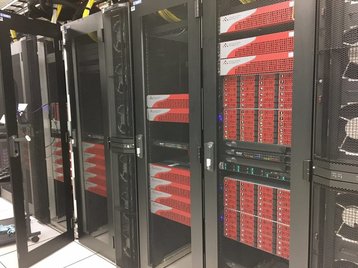The University of Southern Mississippi has installed a high performance computing system to help with research and training in computational and data-enabled science and engineering.
Dubbed Magnolia, the campus-wide cluster was built by Advanced Clustering Technologies and funded in part by a $622,986 Major Research Instrumentation grant from the National Science Foundation.
Sweet Magnolia
Magnolia consists of 1,896 cores for all compute nodes and an additional 7,168 CUDA cores for the graphics processing units.
The machine will be available to students, staff, and faculty at the university, as well as regional community colleges and high schools. It is expected to help advance research in materials science, biological sciences, coastal and marine sciences, and the field of data mining, bioinformatics and geoinformatics.
Specific areas of interest mentioned by Advanced Clustering Technologies include research into climate change, coastal hazard mitigation and resilience building efforts, advanced manufacturing, natural resource management, the materials genome initiative and big data science.
Gopinath Subramanian, assistant professor of polymer science and engineering, was the principal investigator for the Magnolia project, assisted by co-principal investigators Jeremy Wiggert, Jacob Schaefer, Chaoyang (Joe) Zhang and Jeffrey Wiggins.

